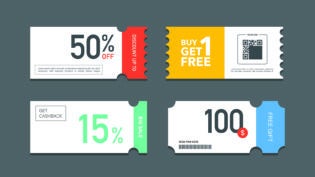Why “Government” Needs to be Part of Your Business
By: Jack Siney

The title of this series does NOT refer to the intrusive government that injects itself into your business with regulations, oversight, and mandates. It refers to the enormous amount of money federal, state, and local government municipalities spend each year—and the incredible impact it could have on your business.
In 2012, over 85,000 local, state and federal governmental agencies combined to spend more than $6 trillion—that equates to over $30 billion each workday ($30 BILLION PER DAY). The combined annual spend of these agencies makes governmental agencies in the U.S. the “largest purchaser in the world.”
The largest purchaser in the entire world needs to become your customer. What business can afford to ignore a prospect of this size? A prospect that is typically less than a one-hour drive from your office, too! Yet so many businesses do. Companies, large and small, decide doing business with the government is just too hard, takes too much time, or involves too much “red tape.” They completely ignore one of their largest sources of potential revenue.
The government purchases everything—everything. Whatever your company makes or whatever service it provides, some government agency (somewhere) is purchasing it. And chances are, they are purchasing a lot of it. Government agencies don’t do things on a small scale.
Ten years ago, total government spending was approximately $4 trillion. It took over 225 years of our country’s existence to reach that level of spending. In just the past decade, governmental spending has increased 50% (to $6 trillion), with projections to reach $8 trillion by 2020.
The recent political debate regarding “sequestration” did result in annual budget cuts of approximately $85 billion through 2021. However, total federal outlays will continue to increase by an average of $238 billion per year during that same time period. Budget cuts were enacted, but total spending is still increasing. This is something only possible in politics.
The bottom-line is that the government is spending a lot of money, and you are doing an enormous disservice to your business if you are not evaluating how to get your share of the business. And to be clear, ALL branches of government are spending money. Even in today’s economy, most small cities/towns have annual budgets well over $20 million.
This goal of this article series is to assist your company in getting a share of the business from the “largest purchaser in the world.” As with all market segments, there are some lessons-learned and tricks-of-the-trade that can help you and your company become a successful government contractor. In this and future articles, I hope to share some tips and insights to help your company “jump into” this potentially lucrative market segment.
Tip Number #1:
The first tip for companies that are seeking government business is to stop waiting on a Request for Proposal (RFP) or Bid to be released by the government for a product or service you offer. Many prospective government contractors believe the only way they can win any government business is to submit a response to a government-issued bid or RFP. That is 100% not true.
There are sources that estimate that as much as 80% of government contracts are awarded without a bid/RFP process. Government agencies have established guidelines and/or spending thresholds that enable them to award contracts without completing the “standard” fair-and-open competition process. The following are examples from around the country that allow agencies to obligate government funds without a formal bid/RFP process:
- Purchases under $5,000 that are procured with a “purchase card” (government credit card)
- Contractor with a “sole source” designation
- Items purchased from a federal or state contract
- Construction contracts under $50,000
- Professional services contracts under $25,000
Additional information on the above examples and other ways to avoid the bid/RFP process will appear in future articles, but the most important detail to remember is that a large amount of business is being awarded to government contractors without the cumbersome process of responding to bids and RFPs.
Recently, The Washington Post reported that federal agencies awarded $115.2 billion in contracts that were not put out for bid/RFP in fiscal year 2012, an 8.9% increase from the $105.8 billion in 2009.
RFPs and bids are still a major component of doing business with the government, particularly in highly competitive industries. However, for most small businesses, success as a government contractor lies in identifying opportunities awarded without a bid/RFP. These opportunities are typically based upon relationships, require your company to have a successful track record, and tend to be more profitable.
Government agencies are looking to do business with companies that are reliable and provide quality products/services at a reasonable price, and they want to minimize the administrative burden of awarding contracts.
Stop being “reactive” and just waiting for government bids and RFPs to be released. The successful government contractors are being “proactive.” Today’s information age, allows companies to strategically target specific opportunities and specific agencies. Your sales efforts should be focused on ensuring the agencies you want to do business with know about your company and your value proposition (what makes you special?). Agencies need to know how great your company is, in order for them to not solicit other proposals.
Published: June 6, 2013
3148 Views
3148 Views














